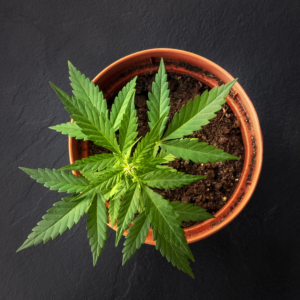Marijuana, or cannabis, is classified by the Drug Enforcement
Administration (DEA) as a Schedule I
substance. Despite this, 23
states and Washington,
D.C.
have legalized marijuana for medicinal use. California was the first
state
in the United States to legalize marijuana for medicinal purposes when
voters passed Proposition 215, or the Compassionate Use Act of 1996, by
55.6 percent on November 5, 1996. On September 30, 2010, Gov. Arnold
Schwarzenegger signed Senate Bill 1449, reducing the punishment for the
possession of one ounce or less of marijuana. Since then, there has been
no population-based data describing medical marijuana users in the
state.
Research Reveals Medical Marijuana Use
Researchers for the Survey Research Group at the Public Health Institute
in Sacramento, California, used data from the California Behavioral
Risk Factor Surveillance System 2012, a
health-related telephone survey of over 7,500 adults, to investigate the
prevalence of medical marijuana use. Published in the Drug and Alcohol
Review in 2014, the study
revealed that in total, five percent of adults in California reported
ever using medical marijuana. Of these, 92 percent believed it helped
treat or relieve symptoms of a serious medical condition. The most
common reasons for using medical marijuana were chronic pain (31
percent), arthritis (11 percent), migraine (8 percent) and cancer (7
percent). Other conditions reported included acquired immune deficiency
syndrome (AIDS), muscle spasms, nausea, stress and depression.
Medical Marijuana Use Prevails Across California
Medical
marijuana
use was prevalent in all age groups, although usage was higher amongst
adults aged 18 to 24. One reason for this could be that older adults
have yet to recognize the benefits of medical marijuana as a therapy for
conditions such as cancer. Medical marijuana use was similar amongst men
and women, and in all areas of California, lending support to the notion
that medical marijuana is not exclusively used by any one specific
group.Prevalence of ever using medical marijuana was highest among white
adults, although use was reported by every racial group examined. The
difference in marijuana use between racial groups was less than three
percentage points, which suggests that medical marijuana is being used
equally by many racial groups.
Results Provide Clear Evidence of Medical Marijuana’s Benefits
Medical marijuana is being used for conditions for which mainstream
treatments may not exist or may not be effective. As more states
contemplate legalizing marijuana for medical use, those who have already
benefited from its therapeutic effects must continue to speak out on its
place in modern medicine.






